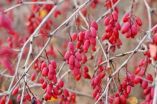(Press-News.org) Some of the world's most recognisable and important landmarks could be lost to rising sea-levels if current global warming trends are maintained over the next two millennia.
This is according to a new study, published today, 5 March, in IOP Publishing's journal Environmental Research Letters, that has calculated the temperature increases at which the 720 sites currently on the list of UNESCO World Heritage sites would be impacted by subsequent sea-level rises.
The Statue of Liberty, Independence Hall, Tower of London and Sydney Opera House are among the 136 sites that would be impacted if the current global warming trend continues and temperatures rise to 3°C above pre-industrial levels in the next 2000 years—a likely and not particularly extreme scenario, according to the researchers.
Also impacted would be the city centres of Brugge, Naples, Riga and St. Petersburg; Venice and its Lagoon; Robben Island; and Westminster Abbey.
Lead author of the study Professor Ben Marzeion, from the University of Innsbruck, said: "Sea-levels are responding to global warming slowly but steadily because the key processes involved—ocean heat uptake and melting continental ice—go on for a long while after the warming of the atmosphere has stopped.
Co-author of the study Professor Anders Levermann, from the Potsdam Institute for Climate Impact Research, said: "After 2000 years, the oceans would have reached a new equilibrium state and we can compute the ice loss from Greenland and Antarctica from physical models. At the same time, we consider 2000 years a short enough time to be of relevance for the cultural heritage we cherish."
As a proxy of where cultural heritage may be currently developing or set to develop in the future, the researchers also calculated the percentage of currently populated places that would be living below sea-level if temperatures increased above pre-industrial levels by 3°C in the next 2000 years.
They found that seven per cent of the current global population would be living on land that would be below sea level and that the distribution of the affected population was uneven—more than 60 per cent of the affected population would be in China, India, Bangladesh, Vietnam and Indonesia.
Additionally, the researchers also calculated the percentage of global land that would be below sea-level under the same scenario. They found that seven countries—including the Maldives, Bahamas and Cayman Islands—would lose 50 per cent of their land and a further 35 countries would lose ten per cent of their land.
Professor Marzeion concludes: "Our results show that if there is a 3°C temperature increase over the next 2000 years, which seems likely to be reached and is generally considered not to be an extreme scenario, the impacts on global heritage would be severe.
"We've assumed that a heritage site is impacted when at least part of it is below local mean sea-level; however, tides and storm surges may dictate whether or not the site should be protected before sea-levels reach this point."
INFORMATION:
From Wednesday 5 March this paper can be downloaded from http://iopscience.iop.org/1748-9326/9/3/034001/article
Notes to Editors
Contact
1. For further information, a full draft of the journal paper or contact with one of the researchers, contact IOP Press Officer, Michael Bishop: Tel: 0117 930 1032 E-mail: michael.bishop@iop.org For more information on how to use the embargoed material above, please refer to our embargo policy.
IOP Publishing Journalist Area
2. The IOP Publishing Journalist Area gives journalists access to embargoed press releases, advanced copies of papers, supplementary images and videos. In addition to this, a weekly news digest is uploaded into the Journalist Area every Friday, highlighting a selection of newsworthy papers set to be published in the following week. Login details also give free access to IOPscience, IOP Publishing's journal platform. To apply for a free subscription to this service, please email Michael Bishop, IOP Press Officer, michael.bishop@iop.org, with your name, organisation, address and a preferred username.
Loss of cultural world heritage and currently inhabited places to sea-level rise
3. The published version of the paper 'Loss of cultural heritage and currently inhabited places to sea-level rise' (Ben Marzeion and Anders Levermann Environ. Res. Lett. 9 034001) will be freely available online from Wednesday 5 March. It will be available at http://iopscience.iop.org/1748-9326/9/3/034001/article.
Environmental Research Letters
4. Environmental Research Letters is an open access journal that covers all of environmental science, providing a coherent and integrated approach including research articles, perspectives and editorials.
IOP Publishing
5. IOP Publishing provides a range of journals, magazines, websites and services that enable researchers and research organisations to reach the widest possible audience for their research. We combine the culture of a learned society with global reach and highly efficient and effective publishing systems and processes. With offices in the UK, US, Germany, China and Japan, and staff in many other locations including Mexico and Russia, we serve researchers in the physical and related sciences in all parts of the world. IOP Publishing is a wholly owned subsidiary of the Institute of Physics. The Institute is a leading scientific society promoting physics and bringing physicists together for the benefit of all. Any profits generated by IOP Publishing are used by the Institute to support science and scientists in both the developed and developing world. Go to ioppublishing.org.
Access to Research
6. Access to Research is an initiative through which the UK public can gain free, walk-in access to a wide range of academic articles and research at their local library. This article is freely available through this initiative. For more information, go to http://www.accesstoresearch.org.uk
The Institute of Physics
6. The Institute of Physics is a leading scientific society. We are a charitable organisation with a worldwide membership of more than 50,000, working together to advance physics education, research and application. We engage with policymakers and the general public to develop awareness and understanding of the value of physics and, through IOP Publishing, we are world leaders in professional scientific communications. Go to http://www.iop.org.
Sea-level rise threatens UNESCO World Heritage sites
2014-03-05
ELSE PRESS RELEASES FROM THIS DATE:
Passive smoking causes irreversible damage to children's arteries
2014-03-05
Exposure to passive smoking in childhood causes irreversible damage to the structure of children's arteries, according to a study published online today (Wednesday) in the European Heart Journal [1].
The thickening of the arteries' walls associated with being exposed to parents' smoke, means that these children will be at greater risk of heart attacks and strokes in later life. The researchers from Tasmania, Australia and Finland say that exposure to both parents smoking in childhood adds an extra 3.3 years to the age of blood vessels when the children reach adulthood.
The ...
Lower index to ring finger ration associated with higher risk of osteoarthritis in knee
2014-03-05
A new study published online today in the journal Rheumatology has found that the lower the ratio between a person's index finger (2D) and their ring finger (4D), the higher their risk of developing severe osteoarthritis in their knees, requiring a total knee replacement.
Osteoarthritis (OA) is a major public health problem linked with significant disability in knees and hips. Hormonal factors are thought to play a role, which is thought to account for the well documented difference in prevalence of OA between men and women. Anthropological studies have suggested that ...
Are plants more intelligent than we assumed?
2014-03-05
This news release is available in German.
Leipzig. Plants are also able to make complex decisions. At least this is what scientists from the Helmholtz Center for Environmental Research (UFZ) and the University of Göttingen have concluded from their investigations on Barberry (Berberis vulgaris), which is able to abort its own seeds to prevent parasite infestation. The results are the first ecological evidence of complex behaviour in plants. They indicate that this species has a structural memory, is able to differentiate between inner and outer conditions as well ...
Hot on the trail of cellular metabolism
2014-03-05
UCPs or uncoupling proteins are present in mitochondria, the powerhouse of each cell in the body. The functions of most of the five known UCPs remain mysterious (UCP2-UCP5), whereby only the distinct function for UCP1 has thus far been discovered. UCP1 is responsible for heat production when muscle activity is deficient such as is the case with babies and animals in hibernation. The research team at the Department of Physiology and Biophysics at the University of Veterinary Medicine in Vienna were able to provide a fundamental explanatory concept for the function of UCP2 ...
Study shows nearly fivefold increased risk for heart attack after angry outburst
2014-03-05
BOSTON – Call it what you will – getting red in the face, hot under the collar, losing your cool, blowing your top – we all experience anger. And while we know that anger is a normal, sometimes even beneficial emotion, we're also aware of the often harmful connection between anger and health. New research from Beth Israel Deaconess Medical shows an even more compelling reason to think about getting anger in check – a nearly fivefold increase in risk for heart attack in the two hours following outbursts of anger.
"There has been a lot of research on anger; we already ...
Not even freezing cold stops alien species in high altitudes
2014-03-05
They hitchhike with us under the soles of our shoes and muddy car tires. Harsh and cold climates do not seem to stop alien plants from establishing themselves in high altitudes, where they now successfully penetrate the alpine vegetation, according to a study at Umeå University in Sweden and the University of Antwerp, Netherlands.
"Alien plants often gain advantages in their new environment because they lack natural enemies, and in this case the lack of strong competitors amongst alpine plants may be the key to success for generalist native species," says ecologist Ann ...
Horses set to gain health benefits from stem cell advance
2014-03-05
Horses suffering from neurological conditions similar to those that affect humans could be helped by a breakthrough from stem cell scientists.
Researchers who are the first to create working nerve cells from horse stem cells say the advance may pave the way for cell therapies that target conditions similar to motor neurone disease.
The research could also benefit horses affected by grass sickness, a neurological condition that affects around 600 horses a year in the UK.
Little is known about the disease, which causes nerve damage throughout the body. It is untreatable ...
Women's jobs are poorer paid, less flexible and more stressful
2014-03-05
Women's jobs are poorer paid, less flexible, more stressful, and offer fewer promotion opportunities than men's, a large international study has found.
Researchers say that the results disprove the theory that women have voluntarily traded less high-powered jobs in order to have more flexibility for their responsibilities at home.
Professor Haya Stier, of Tel Aviv University, and Professor Meir Yaish, University of Haifa, analysed survey data on the working lives of 8,500 men and 9,000 women in 27 industrialised countries, including the UK.
In a paper published ...
New: An environmentally friendly chemical reaction that does not waste any atoms
2014-03-05
This news release is available in German.
In the Research Group of Nuno Maulide, a chemist working at the University of Vienna, a new chemical synthesis for α-arylated Carbonyl derivatives was developed. Members of this class of substances typically possess interesting biological and pharmacological properties and often find applications as medicines. The new technique developed by the Maulide group, which allows such Carbonyl derivatives to be generated easily, efficiently and in an environmentally friendly manner – without wasting any atoms –, has raised ...
Suicidal ideation among US soldiers begins before enlistment
2014-03-05
Nearly 60% of soldier suicide attempts can be traced to pre-enlistment mental disorders, which are much more common among nondeployed U.S. Army soldiers than demographically similar populations of civilians (25.1% vs. 11.6%), according to a major new study. The vast majority (76.6%) of soldiers with mental disorders say their conditions started before enlistment, researchers found.
These are among the initial results published online today in JAMA Psychiatry based on a survey carried out as part of the Army Study to Assess Risk and Resilience in Servicemembers (Army STARRS), ...


